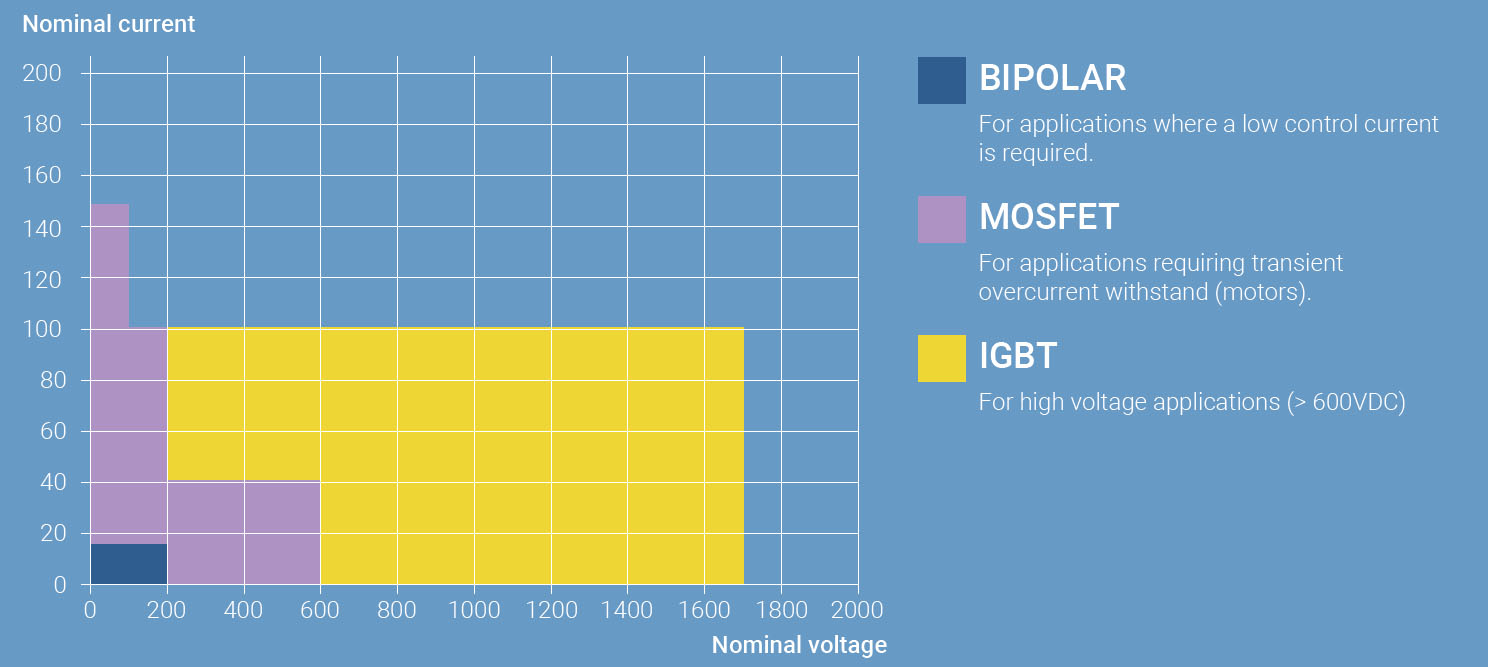Blog - EXPERTISES & INNOVATIONS - Relais statiques - DC Solid State Relays

In a DC Solid-State Relay (DC SSR), various semiconductor technologies are used for switching the DC load. The main technologies typically used in DC SSRs are MOSFETs, IGBTs (Insulated Gate Bipolar Transistors), and Bipolar Junction Transistors (BJTs). Each of these technologies has its own strengths and trade-offs, and they are suited for different applications depending on factors like voltage, current handling, switching speed, and efficiency.
Differently to an AC SSR which has a latching function, current continues to flow in the drive circuit of a DC SSR, holding it on until the input signal is removed. The output current capability is continuously proportional to the input drive current through the photocoupler. The on-state voltage is similar to that of an AC SSR, which gives rise to most of the package dissipation; for this reason, heat sinking requirements are also similar.
celduc® relais offers a complete range of DC solid state relays up to 1700Vdc, 0 to 150A.
Let’s dive into each technology:
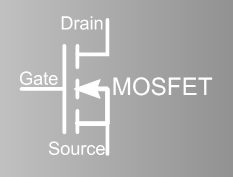
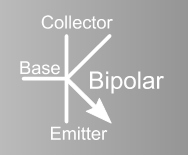
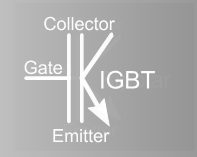
MOSFETs are commonly used when speed and energy efficiency are important. They respond quickly and don’t waste much energy when conducting electricity. Because they work best at lower voltages and higher currents, they’re often found in devices like power supplies, battery systems, microcontroller circuits, cars, and solar panels.
A DC Solid-State Relay (DC SSR) using MOSFET technology works by using one or more MOSFET transistors to switch DC current on or off electronically, without any moving parts.
MOSFETs are a type of field-effect transistor (FET) used for switching DC current. In MOSFETs, the current is controlled by the voltage applied to the gate terminal, which is insulated from the rest of the device by a thin layer of oxide. When a sufficient voltage is applied to the gate, the MOSFET conducts and allows current to flow between the drain and the source.

DC Mosfet Solid State Relays are ideal for applications requiring transient overcurrent withstand (motors).
Imagine a solar-powered battery charger. A DC SSR with a MOSFET can be used to switch the connection between the battery and the charger on or off, based on battery level or temperature — all done quickly and silently with no moving contacts.
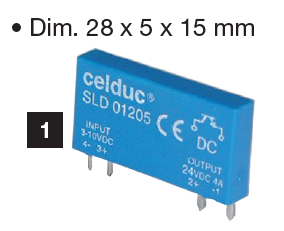
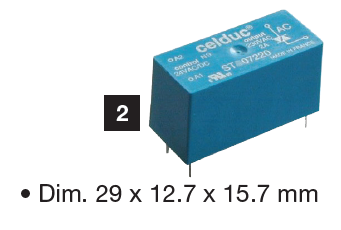
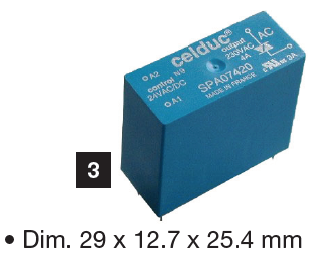
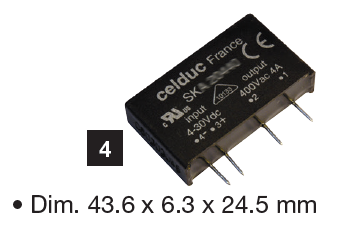
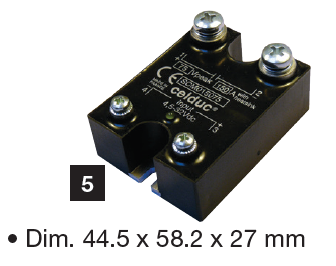
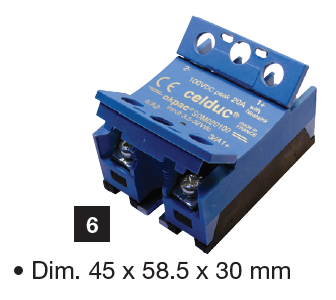
2-IGBT (Insulated Gate Bipolar Transistor) DC to DC Solid State Relays
IGBTs are a mix between two technologies. They’re not quite as fast as MOSFETs, but they can handle much higher voltages and currents. This makes them ideal for bigger jobs like controlling industrial motors, running inverters, managing power in electric vehicles, or working in renewable energy systems.
IGBTs have a gate terminal for control, but they have also strong current-handling capability and the ability to switch on and off with relatively low control power.
When a voltage is applied to the gate, the IGBT switches on, allowing current to flow between the collector and emitter. IGBTs are known for being able to handle large currents and high voltages.

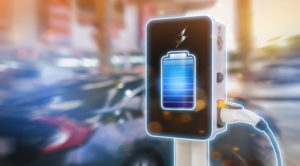 In an electric vehicle charging station, a DC SSR with IGBT is used to connect or disconnect high-voltage DC power to the battery. The IGBT ensures reliable switching, handles large power loads safely, and operates without mechanical wear.
In an electric vehicle charging station, a DC SSR with IGBT is used to connect or disconnect high-voltage DC power to the battery. The IGBT ensures reliable switching, handles large power loads safely, and operates without mechanical wear.
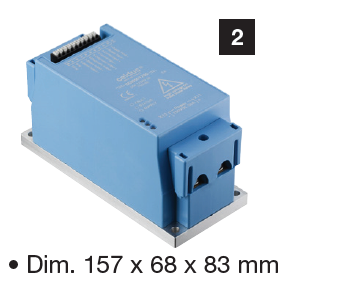
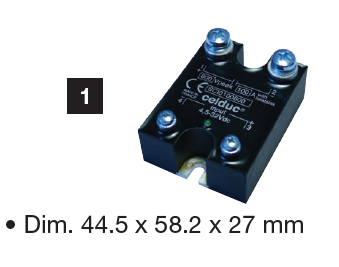
BJTs, or Bipolar Junction Transistors, are another class of components used in DC SSRs, particularly when high current handling is required. BJTs typically have slower switching speeds and higher switching losses compared to both MOSFETs and IGBTs, making them less suitable for high-frequency or high-speed applications. Despite these limitations, BJTs are still used in systems where high current capacity is required but switching speed is not a critical factor. Typical applications include battery chargers, power supply circuits, power amplifiers, and motor control systems that prioritize current handling over switching efficiency.
DC solid-state relays using bipolar technology rely on Bipolar Junction Transistors (BJTs). Their operation is based on a three-layer transistor structure consisting of the emitter, base, and collector. When a small current is applied to the base, it allows a much larger current to flow between the collector and the emitter. BJTs are current-controlled devices, meaning that a continuous base current must be maintained for the transistor to remain conductive.
In essence, these transistors act like electronic switches that are turned on or off with a small voltage.
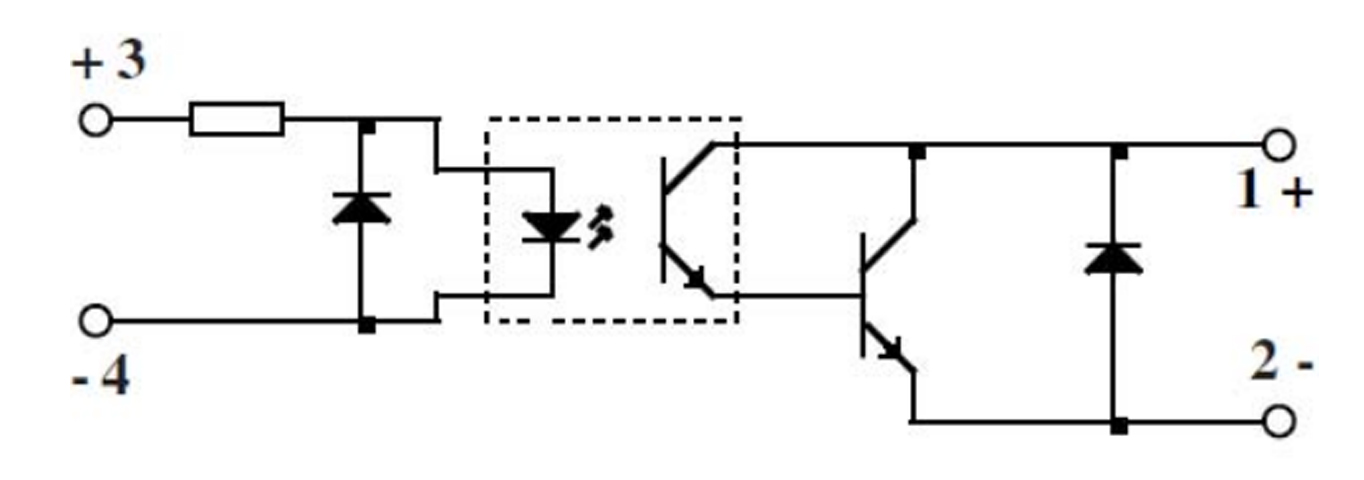
In some industrial conveyor systems, the conveyor belt must move both forward and backward depending on operational needs (e.g., to reposition materials, clear jams, or run diagnostics). This requires reversing the polarity of the DC motor’s supply, which leads to bidirectional current flow through the motor. As The direction doesn’t change frequently during operation, switching speed is not critical, making bipolar SSRs a cost-effective, solid-state alternative to electromechanical relays or complex motor driver circuits.
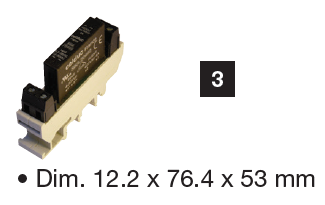
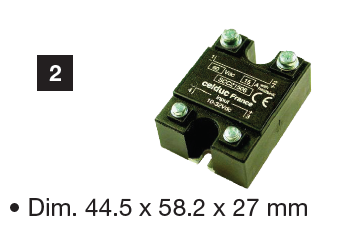
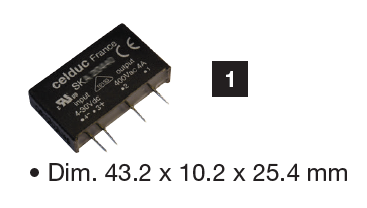
DC power supplies (converters like choppers, inverters, …)
Signal switching (testing equipment, …)
Electro-magnets (induction motor braking, …)
Heaters (air conditioning in trains, tramways, …)
Batteries (ships, solar systems, …)
DC Motors (travelling cranes, cranes, vehicles, …)

In summary, the choice between MOSFETs, IGBTs, and BJTs in DC SSRs depends largely on the specific requirements of the application. MOSFETs offer excellent performance for low-voltage, fast-switching needs; IGBTs are ideal for medium- to high-power applications with demanding voltage and current conditions; and BJTs remain relevant in scenarios requiring high current at low speeds, despite their lower efficiency and slower response times.
Here is a simple and visual comparison chart that summarizes the differences between the three DC solid state relay technologies:
